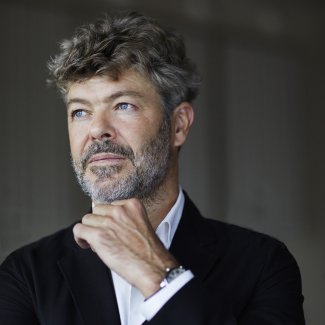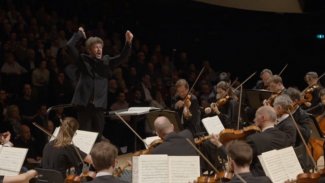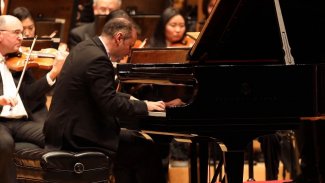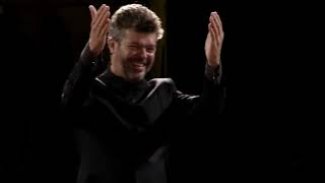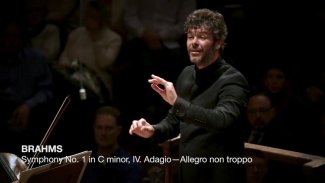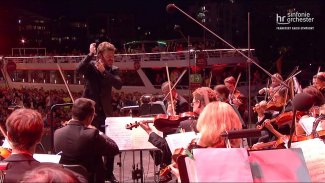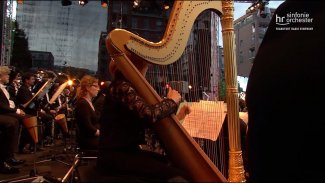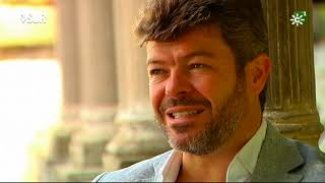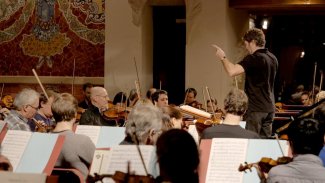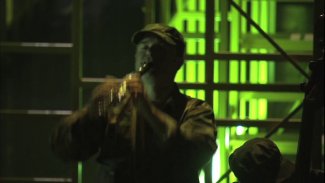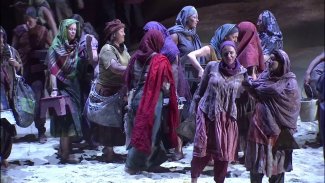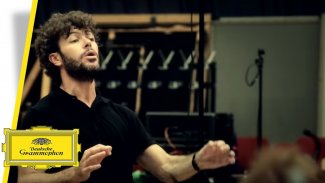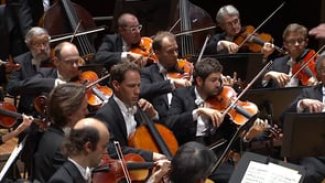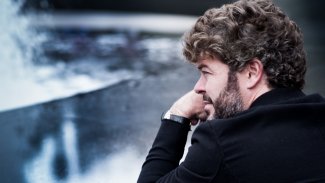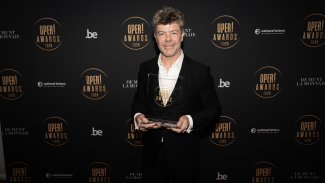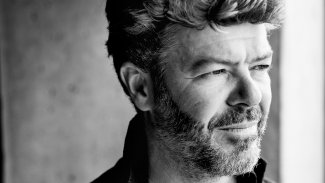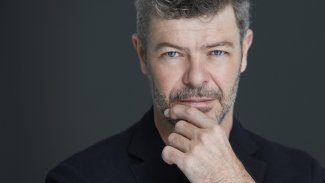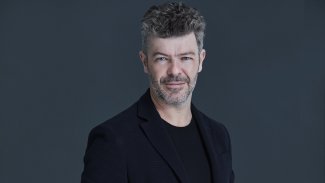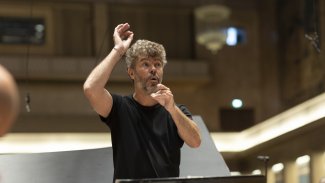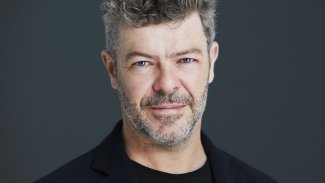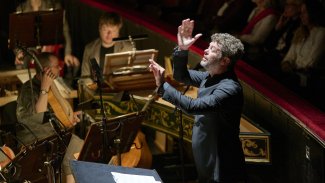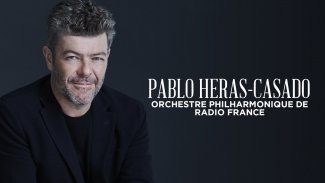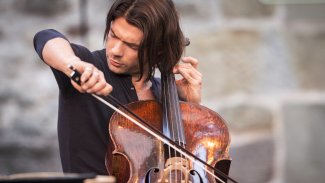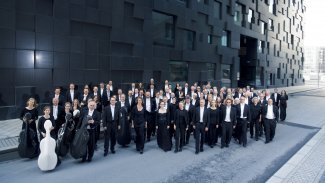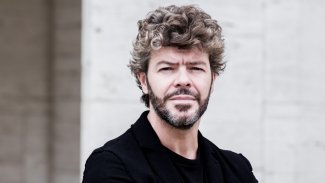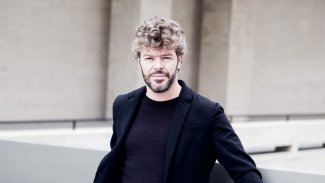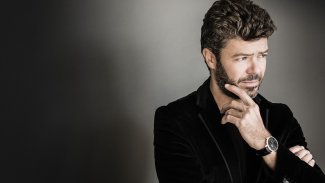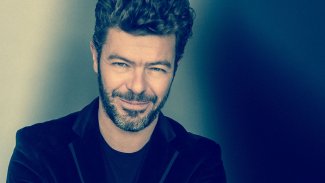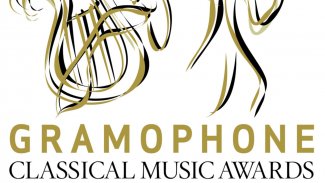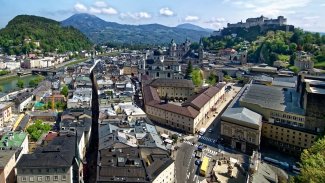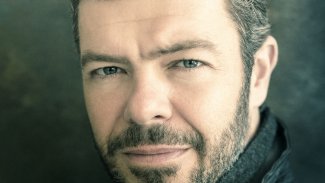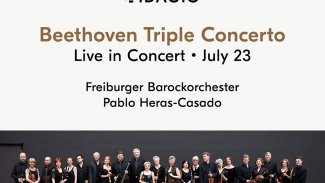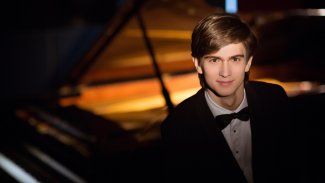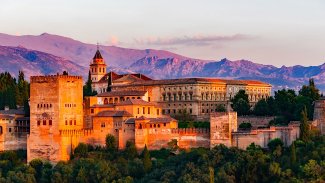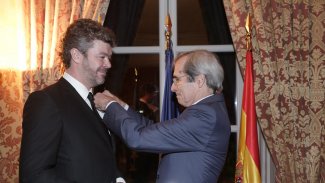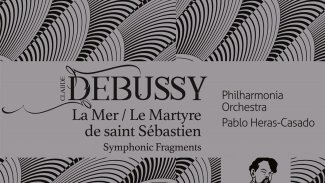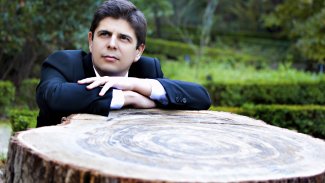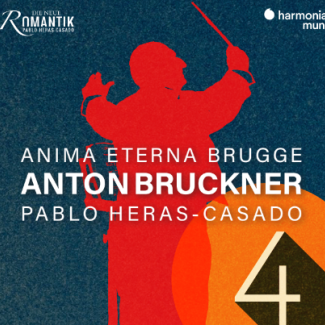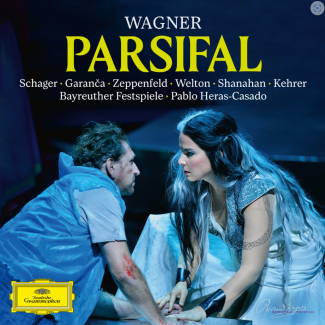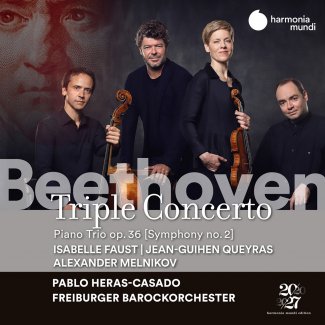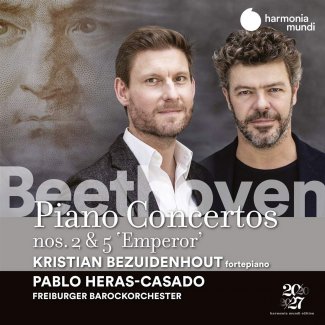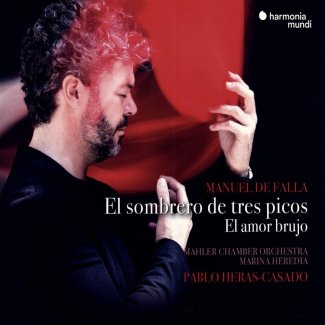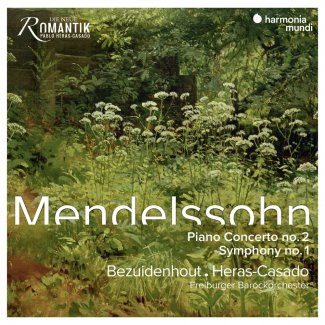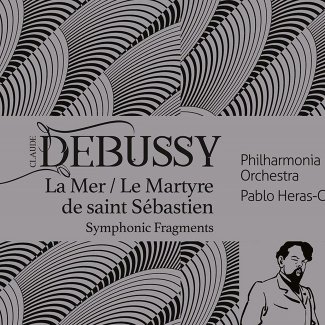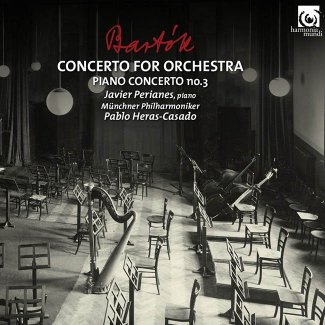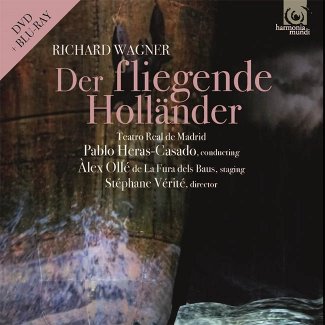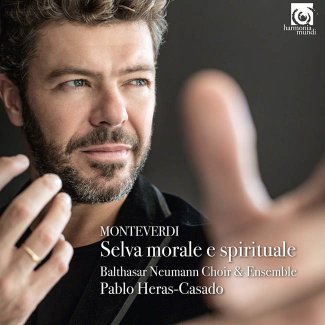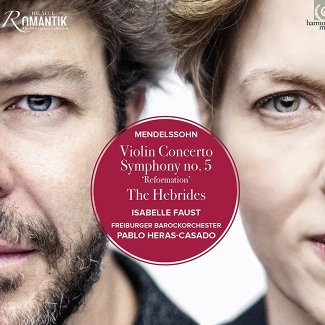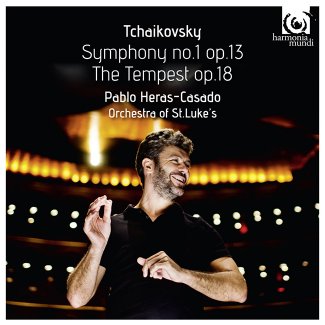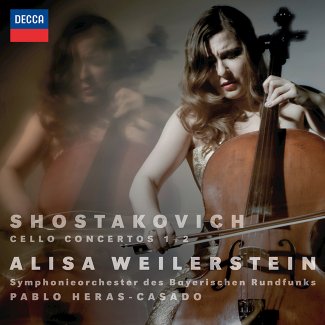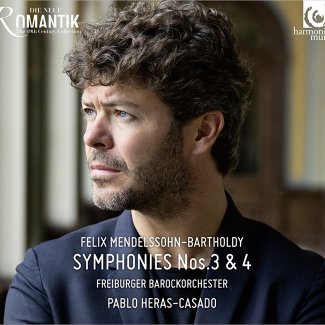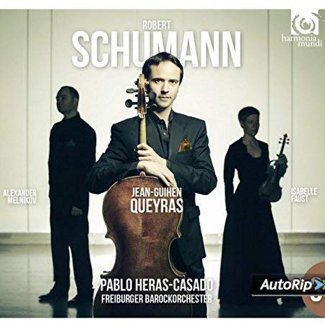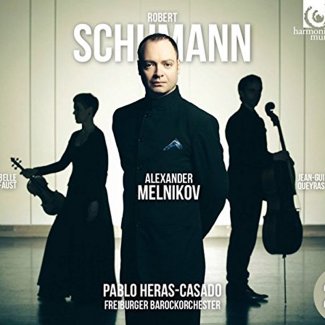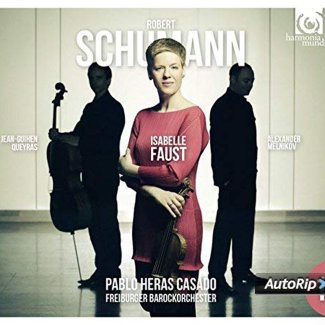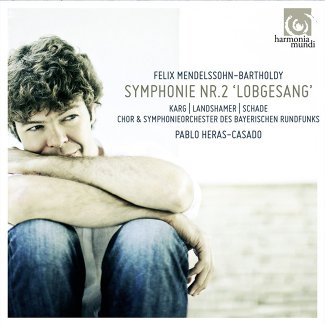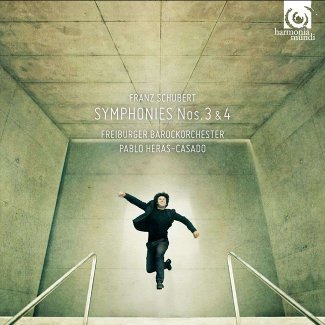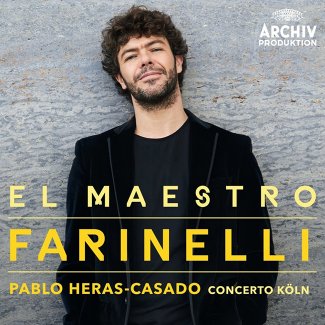

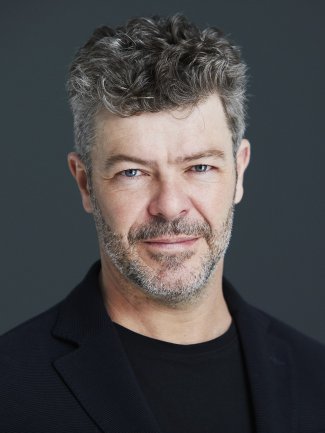
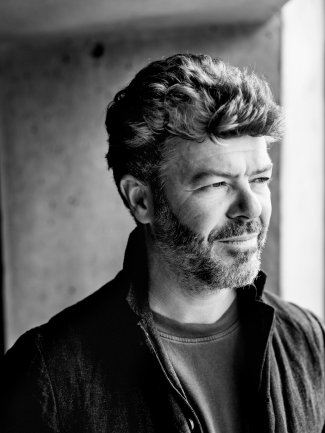
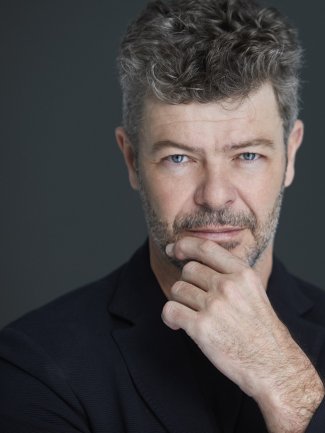
Pablo Heras-Casado
“Heras-Casado came roaring in like a lion. There was a thunderous physicality to his conducting that I don’t recall having witnessed before, a readiness to unleash the full sonic resources of the orchestra and to marshal them in the service of full-blooded accounts of music both old and new.”
(SFGate)
Principal Guest Conductor: Teatro Real, Madrid
In great demand as guest conductor, Heras-Casado regularly appears with Philharmonia Orchestra, Orchestre Philharmonique de Radio France, Staatskapelle Berlin, Münchner Philharmoniker, NDR Elbphilharmonie Orchester, Symphonieorchester des Bayerischen Rundfunks, SWR Symphonieorchester, Wiener Symphoniker, Orchestra dell’Accademia Nazionale di Santa Cecilia, Filarmonica della Scala, NHK Symphony Orchestra and many others. In North America, he works with the symphony orchestras of San Francisco, Chicago, Cleveland, Pittsburgh, Philadelphia and the Los Angeles Philharmonic. He has also performed with the Berliner and Wiener Philharmoniker, Koninklijk Concertgebouworkest, Staatskapelle Dresden, Orchestre de Paris, London Symphony and The Mariinsky orchestras. He enjoys a long-term collaboration with Freiburger Barockorchester, featuring extensive touring and recording projects, most recently Mendelssohn’s A Midsummer Night’s Dream. In summer 2022, he commenced a partnership with Anima Eterna Brugge, touring and recording Bruckner’s symphonies on historical instruments.
Heras-Casado has established himself as one of the most significant Wagner conductors of his generation, following a triumphal debut at the Bayreuther Festspiele conducting Parsifal in 2023 and an equally successful return with the same title in 2024. He reprises Parsifal again in 2025, and it has also been announced that he will conduct a new production of Der Ring des Nibelungen in 2028. He enjoys a regular collaboration with the Wiener Staatsoper, where he has conducted the Monteverdi trilogy (L’Orfeo, L’incoronazione di Poppea, Il ritorno di Ulisse in patria) as well as Mozart’s La clemenza di Tito and Ligeti’s Le Grand Macabre in recent years. In January 2025, he returns to the Opéra National de Paris for Wagner’s Das Rheingold, marking the beginning of a Ring Cycle which will span across the next few seasons. In spring 2025, he conducts Wagner’s Der fliegende Holländer at the Staatsoper Unter den Linden. As Principal Guest Conductor of the Teatro Real in Madrid, Heras-Casado recently conducted Wagner’s Die Meistersinger von Nürnberg and completed a Ring Cycle over four consecutive seasons. He has also previously appeared at the Teatro alla Scala, Staatsoper Unter den Linden, Deutsche Oper in Berlin, the Metropolitan Opera in New York, Festival d’Aix-en-Provence and Festspielhaus Baden-Baden.
Show more
Heras-Casado has an extensive discography for Harmonia Mundi, including a developing series entitled‘Die Neue Romantik’, featuring music by Bruckner (Symphony No.4 with Anima Eterna Brugge), Mendelssohn (the complete symphonies cycle), Schubert (his latest release with the Freiburger Barockorchester features Schubert’s Symphony No.5 and No.7 unfinished) and Schumann (complete concerti). Other releases on the label include a series of albums celebrating Beethoven’s 250th anniversary in 2020 (Freiburger Barockorchester), music of Manuel de Falla (Mahler Chamber Orchestra), Debussy (Philharmonia Orchestra), Schumann’s complete symphonies and Bartók (Münchner Philharmoniker), Stravinsky’s Rite of Spring, alongside Péter Eötvös’ Alhambra (Orchestre de Paris and Isabelle Faust), a work he co-commissioned for the Granada Festival, of which he was Music Director between 2017 and 2019. He is also a recipient of numerous awards, including two Preis der Deutschen Schallplattenkritik, two Diapason d’Or, and a Latin Grammy, as well as a recording for Deutsche Grammophon – including Wagner’s Parsifal, recorded in Bayreuth in 2023 – Decca and Sony Classical.
A dedicated educator, Heras-Casado makes a personal commitment to work with young musicians all over the world, regularly leading youth ensembles and projects, such as the Karajan Akademie der Berliner Philharmoniker, Juilliard School of Music Orchestra and Juilliard415 ensemble, RCO Young, Escuela de Música Reina Sofia, Fundación Barenboim-Said, Joven Orquesta Nacional de España and Gustav Mahler Academy.
Named the 2024 Conductor of the Year by Opernwelt, 2021 Artist of the Year at the International Classic Music Awards, 2015 ECHO Klassik Awards Concert Recording of the Year and Music DVD Recording of the Year, and Musical America’s 2014 Conductor of the Year, Heras-Casado holds the Medalla de Honor of the Rodriguez Acosta Foundation, Medalla de Andalucia 2019 and this region’s Ambassador Award. He is an Honorary Ambassador and recipient of the Golden Medal of Merit by the Council of Granada, and an Honorary Citizen of the Province of Granada, his hometown. In 2018 he was granted the title Chevalier de l’ordre des Arts et des Lettres of the French Republic.
Contacts
Jasper Parrott Executive Chairman HP Group & Associated Companies Teodora Masi Associate Director, Artist Management
worldwide general management
Teodora Masi Associate Director, Artist Management
worldwide general management
Season Highlights
Mozartsaal, Rosengarten
Show more about Mozartsaal, Rosengarten
ANTON BRUCKNER: Mass No. 3 in F minor
Elbphilharmonie Hamburg
Show more about Elbphilharmonie Hamburg
Götterdämmerung:
1. Siegfrieds Rheinfahrt
2. Siegfrieds Trauermarsch
3. “Starke Scheite”
SOFIA GUBAIDULINA: Viola Concerto
Elbphilharmonie Hamburg
Show more about Elbphilharmonie Hamburg
SOFIA GUBAIDULINA: Viola Concerto
Internationale Barocktage Melk
Show more about Internationale Barocktage Melk
CARL PHILIPP EMANUEL BACH: Magnificat in D Major, Wq 215
JOHANN SEBASTIAN BACH: Magnificat
Show more season highlights
Bayreuther Festspielhaus
Show more about Bayreuther Festspielhaus
RICHARD WAGNER: Parsifal
“If a single adjective had to describe Heras-Casado’s “Rheingold”, it would be: flowing. Which is not to say that the work ripples along. On the contrary: springy rhythms, concise articulation and differentiated dynamics in the mostly quiet range create a tension in these 145 minutes that never lets up — …”
“And the other conductorial stroke of luck on the Green Hill is Pablo Heras-Casado: fluid, yet never rushed tempi in “Parsifal”, an organically flowing orchestral sound; a flexibility of timing oriented towards word meanings and musical climaxes. Wagner works with the musical techniques of trance rituals: the definition of temporal and tonal reference systems, the centers of gravity of which are then gradually shifted: time stretches, fundamental time stretches, fundamental tones shift. Heras-Casado does not demonstrate these techniques, he applies them subtly, with an effect aimed at the subconscious. You immerse yourself in listening and completely forget yourself.”
“György Ligeti’s “Le Grand Macabre”, for the first time at the Vienna State Opera: unanimous applause for a musically brilliant performance under Pablo Heras-Casado.”
“In Vienna, Pablo Heras-Casado holds all the strings, ropes and occasionally choppy cables of the score together perfectly, the music is brilliant.”
“Pablo Heras-Casado, conductor of “Parsifal”, enjoyed great approval in the opening premiere, who […] succeeded immediately in presenting the many orchestral highlights with the fabulously disposed orchestra as if on a show run”
“Played with the high degree of rhythmic control and technical perfection that has long become the norm in this work (…) Heras-Casado offers much more than maths, including sinuous, wailing woodwinds”
“Elegance and transparency aren’t adjectives you’d necessarily associate with this score, but Heras-Casado supplies both in spades, and the pay-offs are fascinating, revealing a wealth of inner detail that often gets eclipsed elsewhere.”
“Gripping from start to finish: that was Thursday night’s Dallas Symphony Orchestra concert. One of the most impressive guest conductors in the 2017 – 18 season, the Spaniard Pablo Heras-Casado was back on the podium. Again, he impressed with deeply musical performances, but they were exciting, too. (…) It was good to have Heras-Casado back on the Meyerson podium. I hope he becomes a regular.”
“The beautiful interpretation of Berlioz’s Requiem that made the Philharmonie of Paris vibrate last week is rich in lessons. The first merit of Casado [was that he] remembered that the thunderous bursts that made Berlioz’s Requiem famous represent only about ten minutes out of the ninety of a work whose general tone is rather of a collected fervor. The conductor does not take advantage of the more than 200 executants he has on hand to delve into the colossal or the grandiloquent. His reading remains transparent and developed, with a clarity to which contribute the strings playing with little vibrato.”
“Several elements combine to make this reading of Pablo Heras-Casado [of Berlioz’s Requiem], one of the highlights of this year Berlioz. The great hall of the Philharmonie, first of all (…). To this is added all the science of the Spanish leader in the field of opera, constantly concerned with balance; he proposes in this interpretation a vision in total adequacy with the wishes of the composer, mixing a theatricality without excess to a science of orchestral colours, magnified by his precise and committed clear direction.”
“The most impressive work emerged in Tchaikovsky’s Symphony No. 1 (…) Guest conductor Pablo Heras-Casado conceived an interpretation that made about as strong a case for this disarming composition as one might imagine (…) Thanks to the driving force and urgency of Heras-Casado’s reading, the motifs of the first movement made coherent sense. (…) Shaping a gorgeous Tchaikovsky melody can be more challenging than is apparent, and Heras-Casado showed how it’s done in the second movement. The grace and tenderness he brought to lyric themes made a nocturne of the piece.”
“The musical results were more successful than the program would indicate, with (…) conductor Pablo Heras-Casado making his most impressive CSO podium appearance to date. Relaxed yet in control, the Spanish conductor drew impassioned playing throughout yet skillfully tempered balances and refused to go over the top with volume or speed.”
“A key role was Pablo Heras-Casado, which is becoming more and more a formidable conductor who seems to be able to perform every style period. The Radio Philharmonic Orchestra played under his expressive gestures with great feeling, found the Russian soul and hit the score.”
“From beginning to end, Heras-Casado had Mussorgsky’s colossal score in a firm grasp, delivering a deeply passionate performance underpinned by the cleanest of rhythms.”
“Heras-Casado brings Boulezian analytical textures to the Saint Sébastien fragments and La Mer, but his emotional engagement in this music is far less restrained. The playing is magical.”
“As guest conductor Pablo Heras-Casado raised his long arms to cue the first downbeat of the Brahms Symphony No. 1 on Friday night at Davies Hall, the entire San Francisco Symphony ensemble seemed to take and hold a collective breath. Then, in a kind of ferocious exhalation, the musicians entered the timpani-studded thicket at the outset of the piece. That opening Allegro — indeed the entire symphony — drove on with an oxygen-infused, organic inevitability.”
“At its best, the Philharmonia, guided by the esteemed Pablo Heras-Casado, certainly delivered superb performances. […] Heras-Casado just went with the flow, conjuring up one of the most refreshing, convincing and wettest interpretations [of Debussy’s La Mer] I’ve heard for some time. He was equally on the ball in Ravel’s lovely Mother Goose suite, shaping the miniature sonorities with such exquisite poise that I curled up in bliss.” ****
“Pablo Heras-Casado and Pierre-Laurent Aimard were captivating in an outstanding programme of late 19th- and early 20th-century French music […] The playing was ravishing throughout” ****
“Freiburg’s all-Mendelssohn programme had the translucency and energy of a Turner watercolour. Heras-Casado’s spacious reading of The Hebrides was sensitive to the stillness in Mendelssohn’s writing (…)” *****
“Pablo Heras-Casado (…) led the ensemble with a consistently sophisticated vision.”
“With the gentlest of rhythmic swells in the violins, (…) a subtly revisionist account formed in the quietly authoritative hands of Pablo Heras-Casado. (…) Conductor and orchestra have recorded the symphonies together – the CD of this programme is newly available on Harmonia Mundi – and their account of the “Reformation” was no less illuminated than the Concerto by mutual trust and understanding.”
“Pablo Heras-Casado whips the Orchestre de Paris (…) into a frenzy; his attention to detail, and the thrilling level of excellence, mirror what we see on the stage.” *****
“Pablo Heras-Casado chose a delicate gesture to imprint a new breath on this music, displaying a strong knowledge of the style and spirit of Monteverdi’s music.”
“Heras-Casado, beaming throughout, did not need a score and the orchestra dutifully followed his every gesture. Heras-Casado injected the piece with infectious humour and conducted with verve. (…) His fiery temperament blends with an amiable countenance, sound technique, a broad repertoire and plenty of charisma – could this be the perfect mix to ignite staid Zurichers?”
“The rest of the program was just the latest reminder of what a vivid and resourceful conductor Heras-Casado is. (…) the first major American orchestra to snap him up as music director will have hit the jackpot. … This was exactly the kind of performance that makes a conductor sound like a wizard.”
“One of the most versatile conductors of his generation … Heras-Casado sustained the narrative through slow, quiet sections that otherwise would have had dancers to help carry them. Seamlessly navigating the work’s many transitions, the conductor’s conjuring of orchestral mood and color was so pictorially communicative, one could almost see Prince Ivan encountering the enchanting Firebird for the first time.”
“In his Caramoor debut, maestro Pablo Heras-Casado led a vigorous, forward-moving performance that coaxed taut, nuanced playing from the ever-splendid Orchestra of St. Luke’s and committed singing from the principals and chorus.”
“Heras-Casado is a vigorous, expressive podium artist, and his command of rhythm and dynamics was apparent throughout the evening’s lineup of works by Beethoven, Biber, Haydn and Rameau. Wednesday’s performance in Davies Symphony Hall found the conductor in top form, with especially persuasive results in the second half’s superb reading of Beethoven’s Symphony No. 2 in D major.”
